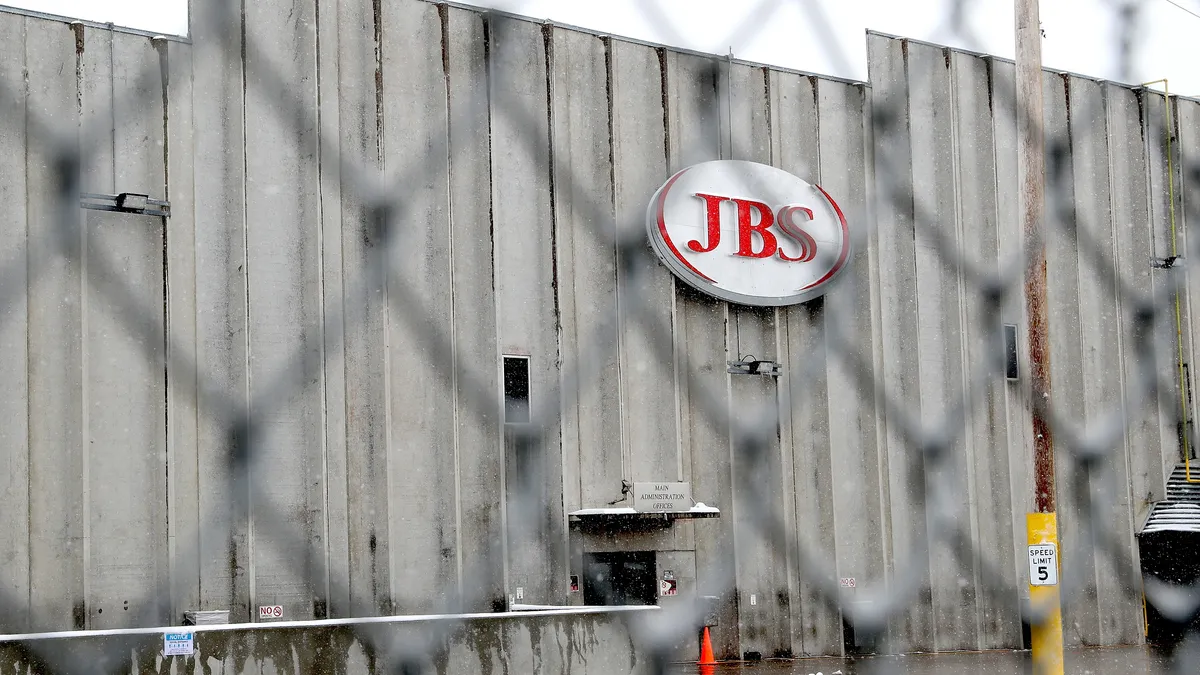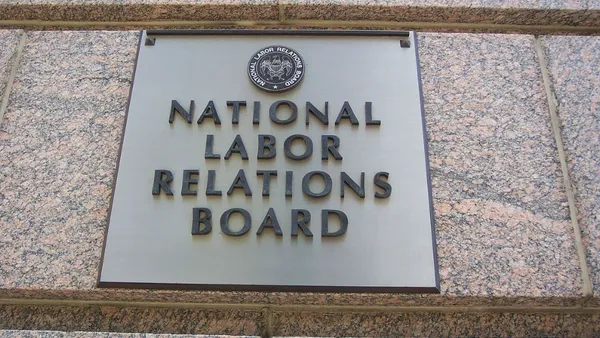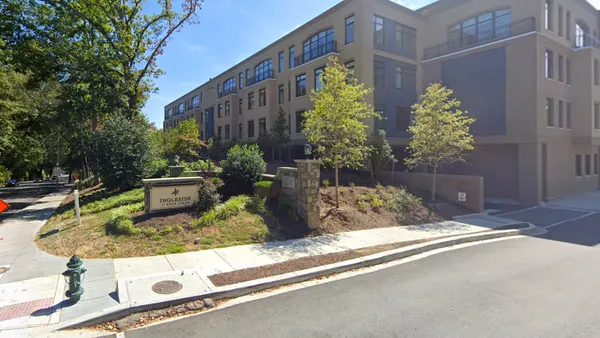Dive Brief:
- A local union is calling on U.S. authorities to investigate JBS USA after uncovering an alleged scheme of abuse and human trafficking at one of the company’s meatpacking plants in Greeley, Colorado.
- The United Food and Commercial Workers Local 7 accused plant management of subjecting Haitian and Beninois immigrant workers to human trafficking via social media platform TikTok. The union also alleged that workers were charged hundreds of dollars for job applications, transportation and to rent company-provided housing in squalid conditions.
- JBS did not immediately respond to Agriculture Dive, HR Dive’s sister publication, for comment, but told Bloomberg it has hired new human resources leaders at the facility and notified local authorities after becoming aware of the “alarming allegations.”
Dive Insight:
The allegations could embolden calls to block the Brazilian meat enterprise from listing JBS shares on a U.S. stock exchange over its climate and human rights record. Environmental groups have warned Wall Street of the listing risks, including how the proposal could diminish shareholders’ voting power on issues related to deforestation and human rights protections.
“What has happened to these workers, who came to our country legally in search of a better life for themselves and their families, is completely unacceptable,” UFCW Local 7 President Kim Cordova said in a statement. “We call on all relevant law enforcement and regulatory agencies to conduct a thorough investigation into the treatment of our members.”
The UFCW accused a hiring manager and one or more associates of charging significant rent for “squalor conditions” to newly-hired immigrant workers.
The union detailed conditions where 40 to 50 workers were sheltered in a 5-bedroom, 2-bathroom home in Greeley, each paying between $60 and $120 per week for rent. There are similar reports linked to a home in Evans, Colorado, and a motel in Greeley that is seemingly paid for by JBS.
Additionally, workers were forced to pay $150 for transportation from Denver International Airport, and for a time, $40-$50 per week for transportation from housing to the plant, which the union estimates to be a five-mile round trip, according to the allegations. A Cargill plant in Fort Morgan, Colorado, may have also been impacted.
The union gathered information from several member workers at the Greeley beef plant and reported its findings to the U.S. Department of Labor, the National Labor Relations Board and the U.S. Postal Inspection Service, as well as state and federal law enforcement and government officials.
In recent years, the UFCW, which represents 3,300 members at the Greeley facility, said the workplace demographic has shifted, driven by an influx of French-speaking African immigrants, with Haitian refugees comprising most of the new hires.
The Greeley plant has had a troubled history. JBS agreed to pay up to $5.5 million to settle a race and religious discrimination lawsuit brought by the U.S. Equal Employment Opportunity Commission for claims against Black, Somali and Muslim employees at the beef facility in 2021.
In its statement to Bloomberg, JBS stressed that it does not charge workers or applicants for any pre-employment services.
“We also notified local authorities and will cooperate with any resulting investigation,” the meat giant said.















